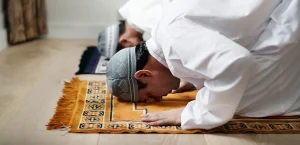THE DUA THAT NEVER FAILS: ASKING ALLAH IN SUJOOD
Dua is one of the greatest acts of worship in Islam. It is the direct connection between the servant and His Creator, the whispered plea of the heart that reaches the heavens. The beauty of dua lies in the fact that Allah ﷻ, the King of all kings, invites us to call upon Him at any time, in any place, for any need—big or small. Yet, within this vast mercy, there are certain times and positions in which dua carries even greater weight. Among them, none is as profound as making dua in sujood.
THE CLOSEST POSITION TO ALLAH
The Messenger of Allah ﷺ said:
“The closest a servant is to his Lord is while he is in sujood, so increase in dua (while in that state).”
(Muslim)
This hadith reveals the secret of sujood. It is in this moment of prostration, when the forehead touches the ground and the heart bows in humility, that a believer is closest to Allah. The position of sujood symbolizes complete submission physically lowering the most honored part of the body, the face, to the lowest point in worship of the Most High. It is in this act of surrender that dua becomes most powerful.
WHY SUJOOD IS SPECIAL
Sujood is unique because it combines both humility and intimacy. No human being willingly lowers themselves in such a state of vulnerability except before Allah. In prostration, pride melts away, the heart softens, and sincerity flows naturally. Words uttered in sujood come from the depths of the soul, and Allah ﷻ responds to such calls with mercy.
Unlike other acts of worship, sujood strips away distractions. The world fades, the ego weakens, and the believer is left in intimate conversation with Allah. This is why the scholars say that sujood is the pinnacle of salah, and the dua within it is among the most likely to be answered.
THE EXAMPLE OF THE PROPHET ﷺ
The Prophet ﷺ himself would lengthen his prostration, filling it with supplications. He would ask Allah for forgiveness, mercy, guidance, and nearness to Him. This practice teaches us that sujood is not a moment to rush through; it is a sacred opportunity to unburden the heart. In sujood, the believer can ask Allah for anything—relief from hardship, forgiveness for sins, strength in faith, and blessings in this life and the Hereafter. There is no request too great or too small for Allah, and no moment more fitting to ask than when in prostration.
SUJOOD OUTSIDE OF PRAYER
Though the sujood in salah is the greatest, voluntary prostration (sujood ash-shukr, the prostration of gratitude, or sujood at-tilawah, prostration upon reciting certain Qur’anic verses) is also a time when a servant can draw near to Allah. Every prostration, whether in prayer or outside of it, is an opportunity to lower oneself in humility and raise one’s status with Allah.
THE DUA THAT NEVER FAILS
For the believer seeking closeness to Allah, the secret lies in sujood. It is in this posture of humility that sins are washed away, hearts are healed, and duas ascend swiftly to the Lord of the worlds. The one who learns to extend his sujood, to whisper his needs and his repentance in that sacred position, will taste the sweetness of faith and see the mercy of Allah in his life.
The dua that never fails is not about the length of words we use, but the sincerity of the heart and the humility of the soul in sujood. When the forehead touches the ground, the heart finds its highest point. And when the servant whispers his needs in that state, Allah listens more closely than at any other time.
CONCLUSION
The dua made in sujood is unlike any other it comes from a place of humility, sincerity, and closeness to Allah. If there is something your heart desires whether forgiveness, relief, guidance, or mercy seek it in your prostration. For the Prophet ﷺ promised that sujood is the moment when a servant is nearest to his Lord, and the dua of that moment never fails.
So the next time you bow down in prayer, do not rush. Stay in sujood a little longer. Whisper your hopes, your fears, and your needs to Allah. For on the ground is where hearts are raised, and from sujood comes the dua that never fails.


